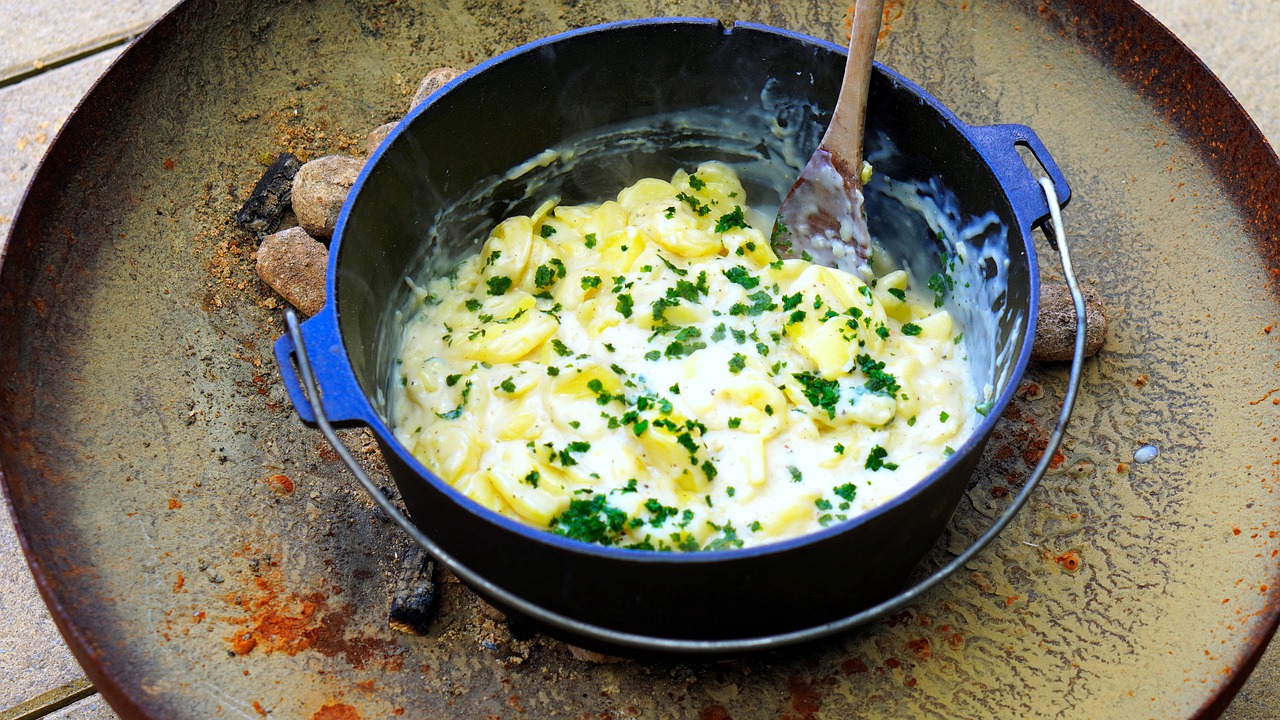A cast-iron utensil set is one of the best investments for the kitchen that you can have. There are plenty of best cooking utensils for cast iron around, and you won’t have any problems finding them at all in department stores and online shops. In today’s blog, we will talk about cast iron’s best spatula, specifically the cast iron skillet.
What Utensils Do You Use with Cast Iron Cookware?
The best utensils for cast iron cookware made from inert materials and are flexible. With these criteria in mind, it would be good to cook with more flexible utensils like silicone spatulas. Wooden spoons and turners, on the other hand, are also ideal because they stay cool no matter how long they stay in the pot.
What Should You Not Use On Cast Iron Cookware?
Cast iron cookware is so durable that no material can scratch or dent it. It is one of the ideal types of cookware, and it is naturally oven-safe. You can use any kitchen utensil, from wood to stainless steel. However, in terms of usability, plastic and wooden utensils are best for cast iron cookware.
Are Wooden or Silicone Utensils Good for Cast Iron Cookware? Why?
Wooden cooking utensils and silicon cooking utensils are excellent for many types of cookware, from cast iron skillets to stainless steel pans.
Silicone Utensils
- Despite their seemingly fragile appearance and pastel colors, silicone cooking utensils have incredible heat resistance and a high melting point compared to ABS plastic and nylon. Silicone only begins to wear down at a temperature of 600°F or 315°
If you are cooking below this temperature, say when you are baking cakes and pastries, molds and trays made from food-grade silicone will do just fine in the oven. High-quality nylon utensils also have a high melting point, but not as high as food-grade silicone, used for kitchen utensils.
Nylon utensils begin to break down at 400-500°F (204.4-260°C), while plastic utensils will immediately begin melting at >220°F (>104.44°). There is simply no comparison between silicone, plastic, and nylon. While these three are very common in the market, you know which material will outlast cooking in an oven. - Because of silicone utensils’ general durability, you can use turners, spatulas, and whisks with zero fear of the utensils catching fire or melting.
It’s also not true that silicone will release harmful chemicals into food once exposed to heat. Food-grade silicone has been studied extensively for decades, and right next to stainless steel, food-grade silicone is the second-best synthetic material to come into contact with food. - Another great advantage of food-grade silicone in general is you can’t stain them easily. Sure, a silicone tray might have a bit of staining if you have some chocolate sauce there, but a good wash with warm water and a dish detergent will remove the stain. This is because silicone material is non-porous, and you can’t stain something that is technically derived from the same material used for making glass (silicon).
In addition to being resistant to liquid stains, silicone cooking utensils also resist embarrassing food odors and other things that usually stick to plastic and nylon materials. - Silicone materials are hardwearing, and at the same time, they are also very rubber-like. If you have an entire kitchen of nonstick pots and pans, you must use silicone cooking utensils so you can converse the nonstick layer of your cookware. Nonstick layers aren’t designed to be scratchproof, and heavier utensils will damage them. This is why it’s a bad idea to have metal utensils and spoons when cooking with less durable surfaces in the kitchen.
A metal spoon will eventually scrape the surface of a nonstick pan. On the other hand, a silicone spatula can be used to remove food residue on any surface gently, and you can’t scratch metal with a rubbery material. That’s how awesome silicone utensils are. - Silicone utensils do not have corrosive properties and are hardwearing despite being manufactured synthetically. They are chemically stable and non-reactive, which means they won’t ruin beverages, marinades, and food in general because the silicone will remain unchanged or neutral as it comes into contact with different types of ingredients.
Compared to softer metal utensils that can easily rust and corrode when they come into contact with acids and fluctuations of temperatures, silicone won’t do that. - And lest we forget, silicone utensils are manufactured from food-grade silicone. This means that these utensils are safe for food contact, and you won’t have to worry about your utensils adding invisible toxins to the food you’re cooking. No matter what the cooking temperature, you’re going to get good and safe results each time.
Wooden Utensils
- Wooden utensils have been around for centuries, and they would always be perfect for cooking. Wood is safe, inert, and gentle on the hands and cookware.
If in doubt, always use wooden utensils in the kitchen. They’re also inexpensive, and you can buy a pack of ten or twelve, and they would barely scratch your bank account. Sometimes, simpler choices bring the best results. If you haven’t cooked with wooden utensils before, maybe today is the time to try it. - Wooden utensils may be biodegradable, but they’re strong and durable, and they won’t let you down. Scraping, stirring, and turning are all so easy for all kinds of wooden utensils. Plus, they have a classic lightness that makes it easy for people to use them. Again, the classic wooden spoon is incomparable in the kitchen. You have to try it to see for yourself.
- The handles of wooden utensils deserve more respect in the kitchen nowadays. Do you remember the last time that a cheap metal scraper suddenly flicked loose off of its handle? That’s because metal conducts heat and eventually melts the glue that connects the plastic handle to the utensil’s metal part.

